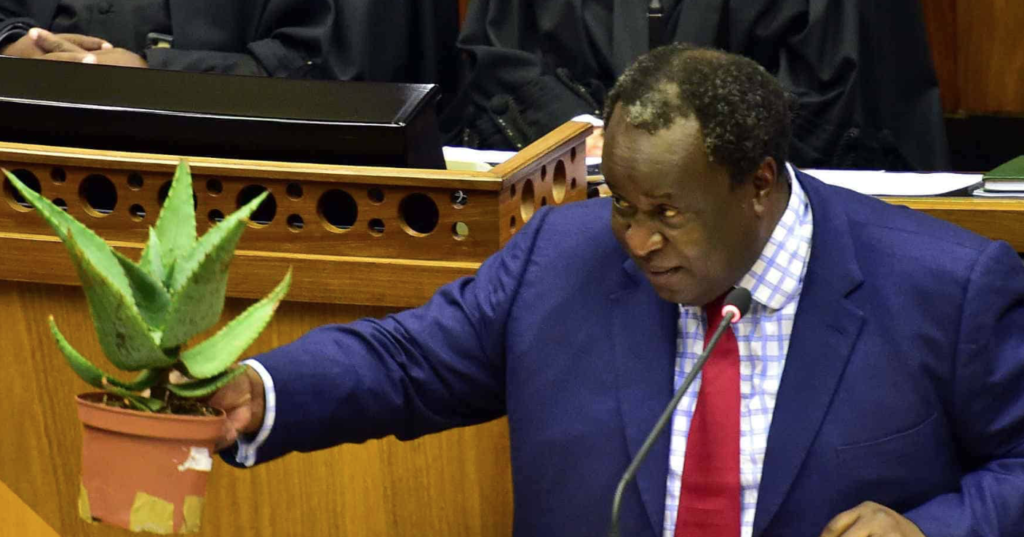The 2020 Budget Speech has officially been delivered by finance minister Tito Mboweni and outlined the state of South Africa’s finances including what the country plans to spend its money on in the year ahead.
According to Mboweni, the South African economy is in the perfect position to be brought to life in the next three years. He noted that sub-Saharan Africa is the second fastest-growing region in the world with a growth rate of 3.5% and that South Africa’s economy is expected to grow by just 0.09% in 2020 with an average inflation of 4.5%.
Here are a few main points mentioned during his speech:
Tax
The government will adjust tax brackets above inflation with taxpayers expected to pay 5.2% less income tax. Fuel levies will increase by 25 centre per litres with a 16 cents per litre increase in the general fuel levy and a 9 centers per litre in the RAF levy.
The annual contribution limit to tax-free savings accounts will be increased by R3000 from March 1, 2020, while an increased excise duties on alcohol and tobacco will be between 4.4 and 7.5% with a new excise duty on heated tobacco products being introduced at a rate of 75 per cent of the cigarette excise rate with immediate effect.
The cap on the exemption of foreign remuneration earned by South African tax residents will also increase to R1.25-million per year From March 2020.
Carbon tax will increase by 5.6% for the rest of the 2020 calendar year. The carbon tax rate will increase to R127 per tonne of carbon dioxide equivalent with the levy on plastic bags increasing by 25 cents.
Lastly, medical aid tax credits will increase to R319 per month for the first two beneficiaries, and from R209 to R215 per month for remaining beneficiaries.
The Wage Bill
The biggest expense mentioned in the budget as always is the government wage bill.
“Between 2006/07 and 2011/12, we were able to add about 190,000 employees. However, at the same time, government wages also increased significantly. We cannot go on like this,” says Mboweni.
Over the next three years, the government aims to cut R160-billion in the wage bill and save R37.8-billion within the next financial year.
Financial support for distressed state-owned companies.
Roughly R162-billion has been allocated over the past 12 years to assist financially distressed state-owned companies.
Eskom accounts from 8% of the total allocations with the government setting aside R49-million in 2019/20 to assist Eskom and an addition R112-billion dedicated for medium-term funding.
Other companies being assisted are listed below:
– Eskom: R112 billion (R56 billion in 2020/21)
– Denel: R600 million.
– SAA: R16.4 billion (R10.3 billion in 2020/21)
– SABC: Cash bailout of R1.1 billion.
– South African Express: R200 million.
Social grants
The social grants of more than 18-million people who currently receive them in South Africa will be increased as of the new financial year.
Grants for old age, disability and care and dependency will increase by R80 to R1,860 per month.
War veteran grants will also increase by R80 to a monthly payout of R1,880.
The foster care grant will increase by R40 to R1 040 and the child support grant will increase by R20 to R445 per month.
Picture: Twitter

